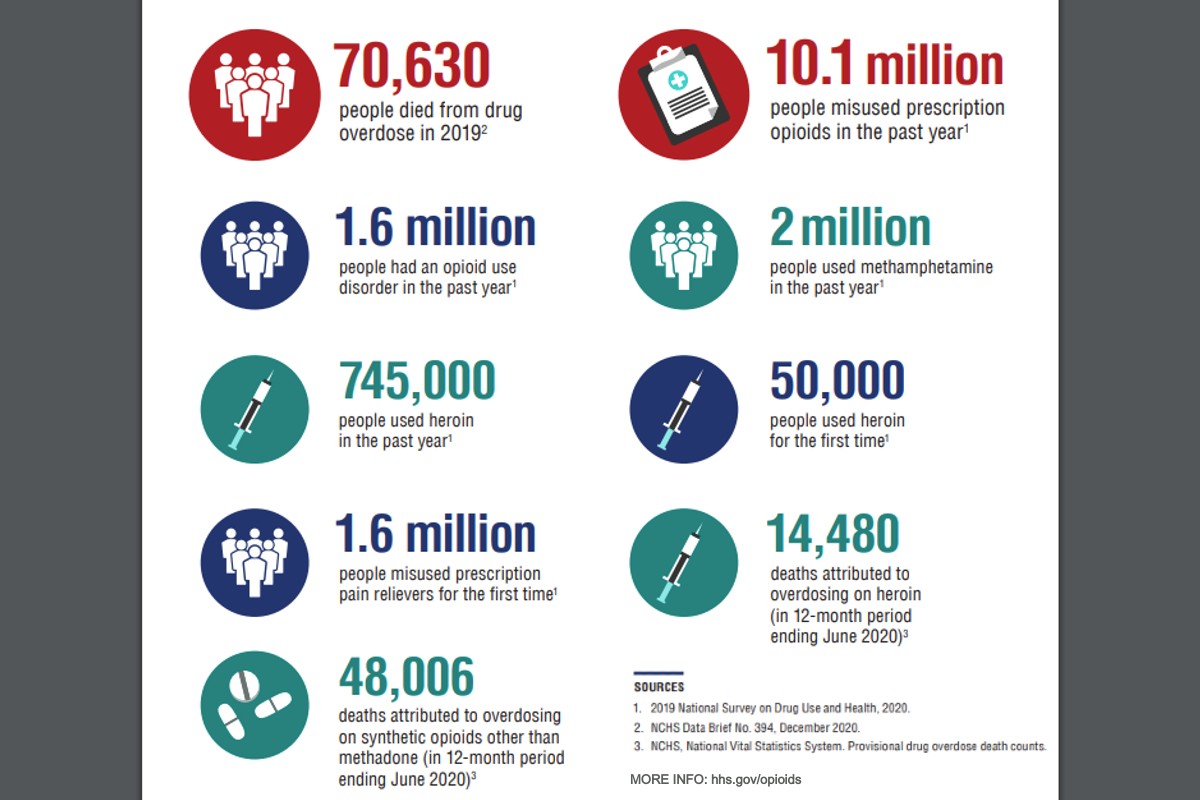STATEHOUSE REPORT | ISSUE 21.38 | SEPT. 23, 2022
BIG STORY: Audit shows state drug abuse agency has work to do
NEWS BRIEFS: S.C. students are testing poorly in history, algebra, biology
LOWCOUNTRY, Ariail: Extra crispy
COMMENTARY, Brack: Culture wars are front and center again in S.C. politics
SPOTLIGHT: S.C. Senate Democratic Caucus
ANOTHER VIEW, Thomas: Different direction needed on state reading policy
FEEDBACK: Send us your thoughts
MYSTERY PHOTO: A partial Rainbow Row
Audit shows state drug abuse agency has work to do

By Herb Frazier | South Carolina expects to receive $300 million in the next two decades from a national opioid litigation settlement to combat the overuse of prescription painkillers that have led to a 60% rise in opioid deaths in the state from 2015 to 2020.
But the state agency that combats drug and alcohol abuse and other addictions is riddled with problems in the way it handles money, delivers services and supervises its staff, according to a new state audit report. And that raises questions about whether it’s up to the job of handling the new funds.

S.C. Rep. Bill. Herbkersman, R-Beaufort, asked the Legislative Audit Council (LAC) to review the response of the S.C. Department of Alcohol and Other Drug Abuse Services (DAODAS) to the opioid epidemic, especially in rural and underserved communities.
The audit, released this month, included a review of other areas, including the pandemic’s effect on DAODAS’s ability to address alcohol and substance use disorders and its involvement with local alcohol and drug abuse agencies.
Herbkersman said in an exclusive interview that the pandemic accelerated the rise of the opioid epidemic in South Carolina and elsewhere. He wanted to determine from the myriad of treatment programs which ones work so they can be made available at centers statewide.
Herbkersman, chairman of the Health and Human Services subcommittee of the House Ways and Means Committee, said lawmakers couldn’t make that assessment on their own so they asked for an LAC audit.
“An audit is always good because when you audit everything is brought to light,” he said. Among other issues, he said, lawmakers are very interested in knowing how many people are treated for substance abuse but return for treatment.
Herbkersman said he’s satisfied with “the job the audit council did. I think they drilled below the surface. It gives a direction to work with DAODAS as a committee and to help strengthen their strengths and to get rid of their weaknesses.”
The agency, he added, is in “the right direction in wanting to do a good job … but we don’t have (answers) to what methods are working best as opposed to what methods are just working but not working as well. It is hard for them to audit themselves, and I think this is a good tool for them to use.”
Almost 4 dozen audit recommendations
 The LAC’s 186-page report includes 78 recommendations on how DAODAS can improve.
The LAC’s 186-page report includes 78 recommendations on how DAODAS can improve.
The LAC’s four-year audit, which began in mid-summer 2016, found that the DAODAS monitoring efforts are inadequate and its internal audit function needs improvements. The audit also found that first responders in rural areas where the opioid crisis is most severe lack training in the use of naloxone, a medication that reverses an opioid overdose. Local alcohol and drug abuse directors also told the auditors it is difficult to contact DAODAS staff.
The LAC has suggested that DAODAS in its relationship with the S.C. Department of Health and Environmental Control (DHEC) should ensure that all first responders statewide are trained to administer naloxone. DAODAS should also advise the S.C. Opioid Recovery Fund Board (ORFB) which areas of the state have the greatest need for the opioid settlement money.
The agency, the LAC report said, should base that need on overdose deaths, including the race and gender of the victims. Opioid deaths in three Charleston-area counties, for example, rose from 137 in 2017 to 243 in 2020, according to DAODAS. Opioids include illegal drugs such as heroin and illicit fentanyl, but they also include prescription medications for the treatment of persistent or severe pain. They include codeine, fentanyl and oxycodone.
Working on audit fixes
In its response to the audit, DAODAS said it has completed 29 of the recommendations, and it is in the process of finalizing 23 others. Action on 17 recommendations are pending. The agency said it disagrees with five of the recommendations and four of them do not apply to DAODAS.
Among the completed recommendations, the agency has expanded funding for patient transportation to services, and it has updated its treatment service manual, the agency said.
It disagrees, however, with the LAC’s assertion that it is not pursuing all of the available federal grants to address the opioid epidemic, and that it is misusing the agency’s credit card.
The agency also is in the process of doing annual risk assessments before it creates a new audit plan to target areas that are of higher risk for fraud and abuse.
In another section, DOADAS said it does not have the authority to evaluate the effectiveness of programs that help people overcome gambling addiction.
In the agency’s overall response to the report, DAODAS Director Sara Goldsby wrote: “While the purpose of the audit was to evaluate the agency’s response to the opioid crisis and other efforts, we wish the evaluation had taken a balanced approach to the department’s strengths and deficits. Overall, we disagree that the summary is an accurate reflection of the full report, or that the report is an accurate reflection of assets and attributes of DAODAS’ work comprehensively.”
Herbkersman said he expects DAODAS to give a full response to the legislature and implement the LAC recommendations within three months.
“We are dealing with fragile people and limited dollars, and we [have to do] the best thing we can for folks who are being affected by this and the taxpayers.”
On the opioid settlement
Four of the nation’s largest companies have agreed to pay nearly $26 billion to settle a wave of lawsuits nationwide that claim they helped to push the deadly opioid crisis. Health care giant Johnson & Johnson, the maker of generic opioid medications, will contribute $5 billion to the settlement. The ORFB will decide how the settlement money is used in this state.
While the death rate for opioid overdose has risen sharply in South Carolina, dispensing of prescription opioids has declined steadily each year from 2017 to 2020, according to the Centers for Disease Control and Prevention . It is expected to update its opioid use report later this year.
Herb Frazier is special projects editor at the Charleston City Paper. Have a comment? Send to: feedback@statehousereport.com.
S.C. students are testing poorly in history, algebra, biology

Staff reports | Results from end-of-year examination scores revealed that South Carolina students are struggling in U.S. history, algebra and biology.
More than a third of high school students failed algebra last year and 24% got a “D.” They scored even worse in history and biology with a mean of 65% and 66%, respectively.
The culprit: Pandemic-related learning loss, education officials suspect.
State Superintendent of Education Molly Spearman said more work needed to be done to help students recover: “Preparing students to meet college and career-readiness standards must not just be an aspiration in our state,” she said, according to published reports. “It’s a responsibility that all of us must play a role in as we pursue meaningful solutions.
In other headlines:
![]() VP Harris challenges S.C. State freshmen to lead. Vice President Kamala Harris told the incoming freshmen class at South Carolina State University on Tuesday that America needs their leadership at a time when many rights are being taken for granted. “In moments of great crisis our nation has almost every time turned to our young leaders to help guide us forward,” Harris told nearly 1,700 students, faculty and staff at the university’s Fall Convocation during which the university welcomed 900 newly enrolled freshmen, the largest class in 15 years.
VP Harris challenges S.C. State freshmen to lead. Vice President Kamala Harris told the incoming freshmen class at South Carolina State University on Tuesday that America needs their leadership at a time when many rights are being taken for granted. “In moments of great crisis our nation has almost every time turned to our young leaders to help guide us forward,” Harris told nearly 1,700 students, faculty and staff at the university’s Fall Convocation during which the university welcomed 900 newly enrolled freshmen, the largest class in 15 years.
S.C.’s five women senators seek admonition for Upstate colleague. South Carolina’s five women state senators, including Charleston Republican Sandy Senn and four others, have criticized state Sen. Josh Kimbrell, R-Spartanburg, for a threat to cut off one of the women’s caucus funding due to a position over abortion.
S.C. law expands kinship care. Gov. Henry McMaster signed into law the expansion of its kinship law, which is when a loved one cares for a child when their parent is not able to do so, to now include “fictive kin,” which refers to those who are not related to the child by birth, adoption or marriage, but have a significant relationship with them.
SC-1: Andrews failed to disclose finances for months. Dr. Annie Andrews only recently released her document after the S.C. Republican Party filed a formal complaint to the House Committee on Ethics. Andrews is the Democratic candidate in the 1st Congressional District race against incumbent Rep. Nancy Mace, R-Charleston. Andrews’ campaign said the failed disclosure was an oversight.
Hiers removed from national most wanted list. Former Charleston police officer Dan Hiers, who has been on the lam for 17 years, has officially been removed from the U.S. Marshals Service’s list of the top 15 suspects they’re pursuing. Hiers is still wanted, but was removed from the list to make room for more priority criminals.
RiverDogs take minor league title again. The Charleston RiverDogs won its second consecutive minor-league baseball title Tuesday night as it beat the Lynchburg Hillcats with a 6-2 win on the road. According to the RiverDogs, “For the first 41 years of the franchise’s history, the team went without winning a championship. Since becoming a Tampa Rays affiliate prior to the 2021 season, the team has posted the best record in Minor League Baseball and earned back-to-back titles.”
Extra crispy

Cartoonist Robert Ariail often interprets things a little differently, but always has an interesting take on what’s going on in South Carolina. Love the cartoon? Hate it? What do you think: feedback@statehousereport.com.
Culture wars are front and center again in S.C. politics

By Andy Brack | Step right up, ladies and gentlemen, to the 2022 culture wars, also known as the statewide election to be held just over six weeks from now on November 8.
 Instead of popcorn, deep-fried Oreos and cotton candy, you’ll be served up a healthy dose of unhealthy hot buttons of issues laced with abortion, gender identity, inflation, spending, guns and a whole range of topics designed to frighten you into voting one way or another.
Instead of popcorn, deep-fried Oreos and cotton candy, you’ll be served up a healthy dose of unhealthy hot buttons of issues laced with abortion, gender identity, inflation, spending, guns and a whole range of topics designed to frighten you into voting one way or another.
You’re sure to get your corn donkeys, err corndogs, and elephant ears as Democrats and Republics push political pressure points to dumb down choices on what should be a process taken much more seriously.
If anything, perhaps due to the political polarization infecting the United States this year, this season’s election seems sillier and less serious than in a long time – which is frightening considering how many people are trying to sow the seeds that elections don’t matter (they do) and unfair (they’re not, other than the poisoning role of big money and gerrymandering.)
Just look at the governor’s race where GOP incumbent Gov. Henry McMaster has been itching to feed the culture war. It’s almost certain his fall campaign plan instructed aides to be on the lookout for any chance to divide people over gender to whip up evangelical and right-wing support. (In dull elections, unmotivated people tend to vote less – unless you give them reasons to get to the polls.)
So it wasn’t surprising this week when McMaster fired off a letter to the Charleston County School District complaining about how schools shouldn’t teach about gender identity without the consent of parents. While the school district did a quick mea culpa, it’s pretty sad that McMaster’s priorities are to inflame his base over something like this instead of seriously addressing persistent poverty or why too many South Carolina students are failing algebra, history and English.
On the Democratic side, it’s not surprising Dr. Annie Andrews is trying to scare the hell out of Lowcountry voters in an ad showing her opponent, GOP Rep. Nancy Mace, holding a black machine gun. It’s an image from an ad that Mace put out in the spring to make her look tough in a grueling Republican primary battle.
For her part, Mace continues a convenient publicity blitz to make herself seem like someone she isn’t. In a new ad seeking to nationalize the First District congressional race by jumping on the ills of inflation, Mace talks about the cost of breakfast, milk and eggs. She’s trying to make it seem like she’s like everybody else, which is interesting since she recently plopped down $3.9 million with her husband-to-be on an Isle of Palms home. You got that kind of pocket change?
Across South Carolina in the weeks ahead, your airwaves, mailboxes and email boxes will be slammed with a lot of political garbage. It may have some impact, but there’s a strong likelihood that something bigger might be going on that will, ahem, trump shenanigans. This year’s seemingly-dull election might actually serve as an inflection point. Across the nation, there are huge swaths of adults who are put out by politics and, we think, will head to the polls to make their voices heard.
For MAGA Republicans supporting former President Donald Trump, the election will be a referendum on President Joe Biden and the Democratic-controlled Congress. At this point, it looks like the Senate will stay Democratic, primarily because of poor GOP candidates in several Senate seats, but the U.S. House may tilt to the GOP.
For more moderate “country club” Republicans who are embarrassed by Trump’s continuing ability to suck the air out of the political universe with loony schemes, the election may be a way to inject some sanity into the process.
And Democrats likely will benefit from millions of women who support the right to have access to abortion, which the Republican majority on the U.S. Supreme Court overturned in June.
Use your clicker to turn off the nonsense. Use your brain to pick the best candidates to lead the state and country.
Andy Brack is editor and publisher of Statehouse Report and the Charleston City Paper. Have a comment? Send to: feedback@statehousereport.com.
S.C. Senate Democratic Caucus
 The public spiritedness of our underwriters allows us to bring Statehouse Report to you at no cost. This week’s spotlighted underwriter is the S.C. Senate Democratic Caucus. Organized almost 25 years ago, the Caucus has played an important role in many of the historic issues facing our state. As a vibrant minority party in the Senate, its role is to represent our constituents and present viable alternatives on critical issues. The S.C. Senate Democratic Caucus remains a unique place for this to occur in our policy process.
The public spiritedness of our underwriters allows us to bring Statehouse Report to you at no cost. This week’s spotlighted underwriter is the S.C. Senate Democratic Caucus. Organized almost 25 years ago, the Caucus has played an important role in many of the historic issues facing our state. As a vibrant minority party in the Senate, its role is to represent our constituents and present viable alternatives on critical issues. The S.C. Senate Democratic Caucus remains a unique place for this to occur in our policy process.
- Learn more about the Caucus at: www.scsenatedems.org.
Different direction needed on state reading policy

By Paul L. Thomas, special to Statehouse Report | Within 10 days in May 2022, two articles about reading ran prominently in the New York Times (one on a new dyslexia program in NYC and one on Lucy Calkins’s Units of Study). Both mentioned the “science of reading” movement that since 2018 has been politically effective but also intensely polarizing.

In 2020, Kindel Turner Nash and Leah Panther documented why they became “concerned by the direction that the debate about what methods teachers should use to help kids learn to read has taken.”
Despite concerns raised by scholars, a result of this selective characterization of the research base has been extremely effective in lobbying for revised and new phonics-first, one-size-fits-all reading legislation across 30-plus states in the U.S.
While “science of reading” advocates claim reading science is both simple and settled, the full body of evidence around reading science proves to be complex and challenging to translate into policy and practice.
Who is the “Science of Reading”?
Educators and scholars have used the term “science of reading” as shorthand for the broad and nuanced body of research on how children learn to read and how best to teach reading. Since 2018, however, the phrase has been used in the media-based movement emphasizing phonics and in marketing phonics-oriented reading and literacy programs and services. Such media attention and associated advocacy have been extremely effective in lobbying for phonics-oriented legislation across most states in the U.S, with commercial vendors also contributing momentum.
An article titled “Hard Words” by Emily Hanford is ground zero of the current science of reading movement. Based on the example of a Pennsylvania school that implemented reading science and raised test scores, the article offered an extended analysis and criticism of reading instruction across the U.S. The analysis established several points of debate about the teaching of reading.
Reading science, Hanford claimed, is limited to the simple view of reading and is characterized as settled science. Other claims in her coverage are that “science” is restricted to the field of cognitive psychology and experimental/quasi-experimental research. The sources of low student reading achievement are that teachers do not know or fail to implement reading science and that teacher educators either do not understand or “dismiss” reading science. The movement’s advocacy also blames low reading achievement on popular commercial reading programs, notably those by Lucy Calkins (Units of Study) and Fountas and Pinnell.
Advocates in this science of reading movement include journalists (including Hanford, Dana Goldstein and Natalie Wexler), cognitive scientists (including Mark Seidenberg and Daniel Willingham), and literacy scholars (including Louisa Moates). However, many literacy scholars and researchers have challenged the media-based movement for exaggerating and oversimplifying claims about reading, science, and research; for depending on anecdotes and misleading think-tank claims about successful implementation of reading research; and for fostering a hostile social media climate around reading debates.
Why does it matter?
Throughout the late 2010s, the science of reading movement as presented in the media directly and indirectly influenced state-level reading policies and practices including grade retention based on 3rd-grade high-stakes tests, banning popular reading programs, new and expanded dyslexia legislation, mandated systematic phonics for all students, and new phonics-intensive training for pre-service and current teachers.
With the increased “science of reading”-inspired state policy, news concerns include:
- Overstatements and oversimplifications within media and public advocacy.
- Ignoring known influences on student reading achievement, such as socioeconomics of communities, schools, and homes; teacher expertise and autonomy; and teaching and learning conditions.
- Replacing individualized practice with “one-size-fits-all” approaches.
In rethinking past efforts and undertaking new reforms, policymakers should do the following:
- End narrowly prescriptive non-research-based policies and programs such as:
- Grade retention based on reading performance.
- High-stakes reading testing at Grade 3.
- Mandates and bans that require or prohibit specific instructional practices, such as systematic phonics and the three-cueing approach.
- A “one-size-fits-all” approach to dyslexia and struggling readers.
- Form state reading panels, consisting of classroom teachers, researchers, and other literacy experts. Panels would support teachers by serving in an advisory role for teacher education, teacher professional development, and classroom practice. They would develop and maintain resources in best practice and up-to-date reading and literacy research.
On a more local level, school- and district-level policymakers should do the following:
- Develop teacher-informed reading programs based on the population of students served and the expertise of faculty serving those students, avoiding lockstep implementation of commercial reading programs and ensuring that instructional materials support—rather than dictate—teacher practice.
- Provide students struggling to read and other at-risk students with certified, experienced teachers and low student-teacher ratios to support individualized and differentiated instruction.
Thomas is a professor of education at Furman University. Read his 36-page study here. Have a comment? Send to: feedback@statehousereport.com.
Send us your thoughts
Have a comment? Send your letters or comments to: feedback@statehousereport.com. Make sure to provide your contact details (name, hometown and phone number for verification. Letters are limited to 150 words.
A partial Rainbow Row

Here are some colorful buildings somewhere in South Carolina. Where are they located? Send your guess – and your name and hometown – to feedback@statehousereport.com.
 Last week’s image of “Tumbling water,” showed the spillway at Lake Placid at Paris Mountain State Park in Greenville.
Last week’s image of “Tumbling water,” showed the spillway at Lake Placid at Paris Mountain State Park in Greenville.
“Lake Placid is a 13-acre lake located within Paris Mountain State Park located approximately 8-miles north of Greenville, S.C,” reader Allan Peel of San Antonio, Texas, said. “When this dam was built in 1898, the water it collected was known simply as Reservoir #2. The first reservoir, today called Mountain Lake, had been constructed eight years earlier, but the growing city of Greenville demanded additional reliable and pure water, so this second reservoir was needed. When this reservoir was added to the Greenville municipal water system, no one envisioned that it too, would be outgrown by 1904.”
Others who correctly identified the photo were Elizabeth Jones and Jay Altman, both of Columbia; David Lupo of Mount Pleasant; Pat Keadle of Wagener; and Jacie Godfrey of Florence.
>> Send us a mystery picture. If you have a photo that you believe will stump readers, send it along (but make sure to tell us what it is because it may stump us too!) Send to: feedback@statehousereport.com and mark it as a photo submission. Thanks.
- ORDER NOW: Copies are in Lowcountry-area bookstores now, but if you can’t swing by, you can order a copy online today.
- Now available as an e-book!
ABOUT STATEHOUSE REPORT
Statehouse Report, founded in 2001 as a weekly legislative forecast that informs readers about what is going to happen in South Carolina politics and policy, is provided to you at no charge every Friday.
- Editor and publisher: Andy Brack, 843.670.3996
Donate today
We’re proud to offer Statehouse Report for free. For more than a dozen years, we’ve been the go-to place for insightful independent policy and political news and views in the Palmetto State. And we love it as much as you do.
But now, we can use your help. If you’ve been thinking of contributing to Statehouse Report over the years, now would be a great time to contribute as we deal with the crisis. In advance, thank you.
Buy the book
Now you can get a copy of editor and publisher Andy Brack’s We Can Do Better, South Carolina! ($14.99) as a paperback or as a Kindle book ($7.99). . The book of essays offers incisive commentaries by editor and publisher Andy Brack on the American South, the common good, vexing problems for the Palmetto State and interesting South Carolina leaders.
More
- Mailing address: Send inquiries by mail to: P.O. Box 21942, Charleston, SC 29413
- Subscriptions are free: Click to subscribe.
- We hope you’ll keep receiving the great news and information from Statehouse Report, but if you need to unsubscribe, go to the bottom of the weekly email issue and follow the instructions.
- Read our sister publication: Charleston City Paper (every Wednesday in print; Every day online)
- © 2022, Statehouse Report, a publication of City Paper Publishing, LLC. All rights reserved.















 We Can Do Better, South Carolina!
We Can Do Better, South Carolina!